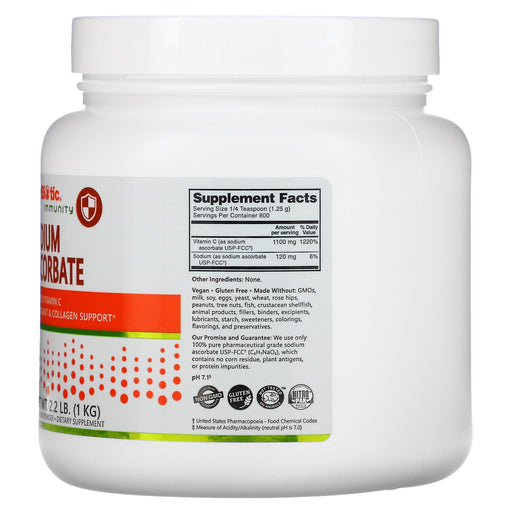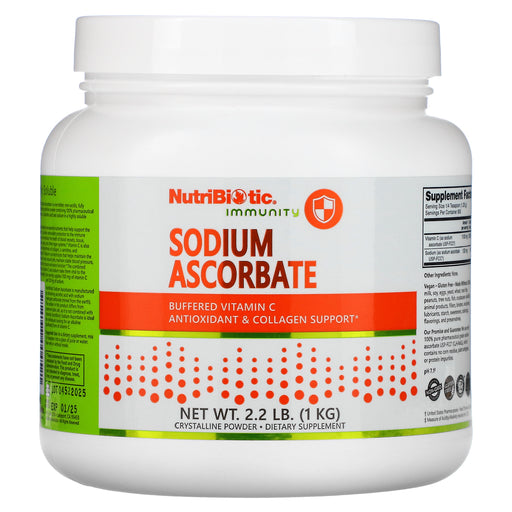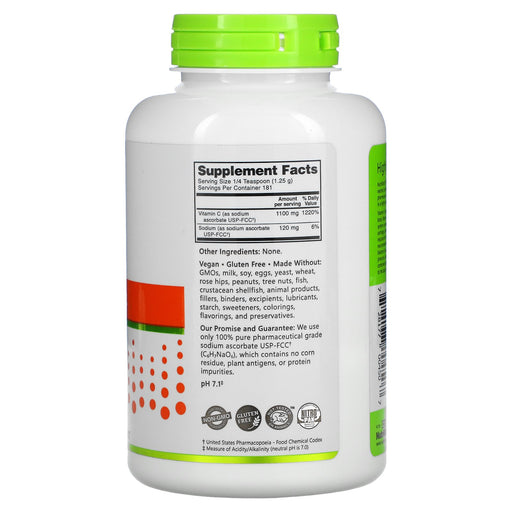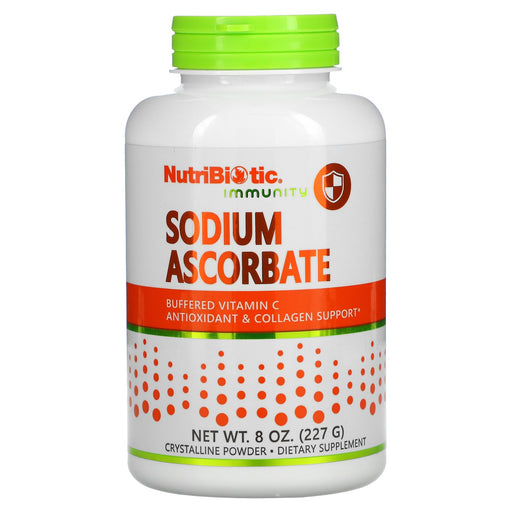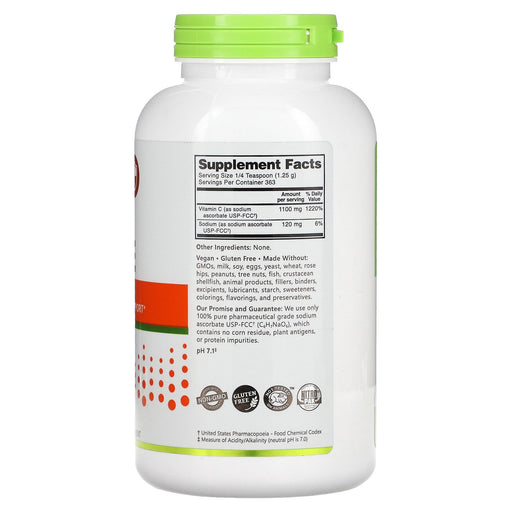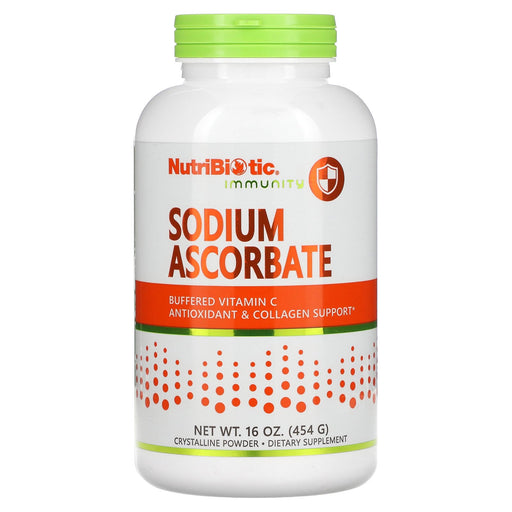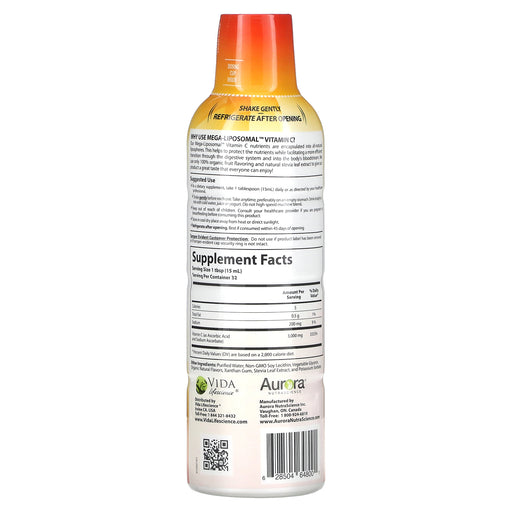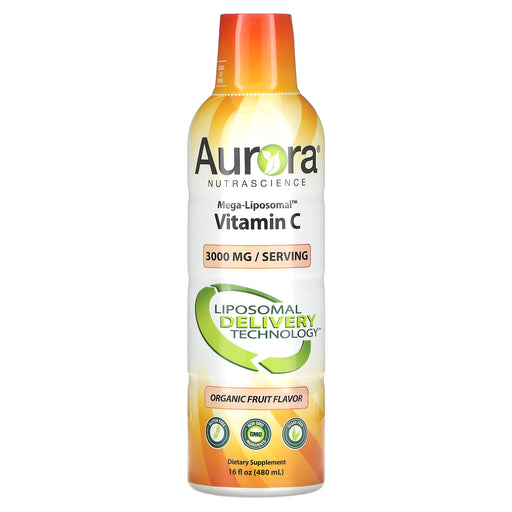
Harness the Power of Sodium Ascorbate for Enhanced Vitamin C Benefits
Sodium ascorbate is a buffered form of vitamin C that offers a gentler, more bioavailable alternative to traditional ascorbic acid supplements. By incorporating sodium ascorbate into your wellness routine, you can experience the powerful antioxidant, immune-supportive, and overall health benefits of vitamin C without the potential digestive discomfort associated with other forms.
What is Sodium Ascorbate?
Sodium ascorbate is a salt formed by combining vitamin C (ascorbic acid) with sodium bicarbonate (baking soda). This process creates a buffered, less acidic form of vitamin C that is gentler on the digestive system and more readily absorbed by the body.
Vitamin C is an essential nutrient that plays a vital role in numerous physiological processes, including immune function, collagen synthesis, and antioxidant protection. However, some individuals may experience digestive discomfort, such as stomach upset or diarrhea, when taking high doses of traditional ascorbic acid supplements.
Sodium ascorbate offers a solution to this problem, providing a more tolerable and bioavailable form of vitamin C that can be taken in higher doses without the risk of gastrointestinal side effects.
Benefits of Sodium Ascorbate Supplementation
Incorporating sodium ascorbate supplements into your health regimen may offer several potential benefits, including:
- Enhanced Immune Support: Vitamin C is a powerful immune-supportive nutrient that helps stimulate the production and function of white blood cells, enhancing the body's natural defenses against pathogens and oxidative stress.
- Improved Antioxidant Protection: As a potent antioxidant, vitamin C helps neutralize harmful free radicals and reduces oxidative stress throughout the body, supporting cellular health and overall well-being.
- Better Digestive Tolerance: The buffered nature of sodium ascorbate makes it gentler on the digestive system, reducing the risk of stomach upset, diarrhea, and other gastrointestinal side effects associated with high-dose vitamin C supplementation.
- Increased Bioavailability: Sodium ascorbate is more readily absorbed by the body compared to traditional ascorbic acid, ensuring that you receive the maximum benefits of vitamin C supplementation.
- Collagen Synthesis Support: Vitamin C is essential for the production of collagen, a key structural protein that maintains the health and integrity of skin, bones, cartilage, and blood vessels.
Choosing the Best Sodium Ascorbate Supplement
When selecting a sodium ascorbate supplement, consider the following factors to ensure you choose a high-quality product that meets your needs:
- Purity and Quality: Look for supplements that are manufactured by reputable companies, free from artificial additives and contaminants, and third-party tested for purity and potency.
- Dosage: Choose supplements that provide an effective daily dose of sodium ascorbate, typically ranging from 500-1,000 mg per serving, depending on your individual needs and health goals.
- Form and Absorption: Consider supplements that use highly bioavailable forms of sodium ascorbate, such as liposomal or buffered powders, for optimal absorption and utilization by the body.
- Brand Reputation: Select supplements from trusted brands with a history of producing high-quality, science-backed vitamin C products and a commitment to transparency and safety.
- Complementary Nutrients: Some sodium ascorbate supplements may include additional immune-supportive or antioxidant nutrients, such as zinc, vitamin D, or bioflavonoids, for a more comprehensive approach to health and well-being.
Maximizing the Benefits of Sodium Ascorbate Supplements
To get the most out of your sodium ascorbate supplement, consider the following tips:
- Follow Dosage Instructions: Always adhere to the recommended dosage on the product label, and consult with your healthcare provider before starting any new supplement regimen, especially if you have pre-existing health conditions or are taking medications.
- Take with Food: To further minimize the risk of digestive discomfort, take your sodium ascorbate supplement with a meal or snack.
- Stay Hydrated: Drink plenty of water throughout the day to support optimal nutrient absorption, detoxification, and overall health.
- Pair with a Balanced Diet: While sodium ascorbate supplements can provide a concentrated dose of vitamin C, they should be used in conjunction with a balanced, nutrient-dense diet rich in fruits, vegetables, and other whole foods.
- Store Properly: Keep your sodium ascorbate supplement in a cool, dry place, away from direct sunlight and moisture, to maintain its potency and stability.
Unleash the Full Potential of Vitamin C with Sodium Ascorbate Supplements
If you're looking to experience the immune-boosting, antioxidant, and overall health benefits of vitamin C without the digestive discomfort often associated with traditional supplements, sodium ascorbate may be the perfect solution. By providing a gentler, more bioavailable form of this essential nutrient, sodium ascorbate allows you to optimize your vitamin C intake and unleash your body's full potential for health and vitality.
Witness the difference that sodium ascorbate can make in your wellness journey by exploring our curated selection of high-quality supplements. With a commitment to purity, efficacy, and your individual needs, Health Orchard is here to support you in harnessing the power of vitamin C for optimal health and well-being.
Frequently Asked Questions about Sodium Ascorbate
1. What is the best time to take sodium ascorbate?
The best time to take sodium ascorbate may depend on individual preferences and needs. Some people prefer to take it in the morning with breakfast, while others may take it in divided doses throughout the day. Sodium ascorbate is generally well-tolerated and can be taken with or without food. However, taking large doses on an empty stomach may cause gastrointestinal discomfort in some people. It is important to follow the dosage instructions on the product label or as directed by a healthcare professional and to not exceed the recommended daily intake.
2. How many capsules of sodium ascorbate should I take?
The recommended dosage of sodium ascorbate varies depending on individual needs and health status. The general recommended dietary allowance (RDA) for vitamin C is 65-90 mg per day for adults. However, some people may require higher doses for specific health conditions or to support immune function. It is important to follow the dosage instructions on the product label or as directed by a healthcare professional. In general, it is safe to take up to 2,000 mg of vitamin C per day, but higher doses may cause gastrointestinal side effects such as diarrhea and nausea. If you have any concerns about the appropriate dosage for your needs, it is best to consult with a healthcare professional.
3. What is sodium ascorbate used for?
Sodium ascorbate is a form of vitamin C that is used for various health purposes. Some of the main uses of sodium ascorbate include:
- Boosting immune function: Vitamin C is a powerful antioxidant that helps support the immune system and protect against oxidative stress
- Promoting skin health: Vitamin C is essential for collagen production, which helps maintain healthy skin, hair, and nails
- Supporting cardiovascular health: Vitamin C may help lower blood pressure, reduce inflammation, and improve blood vessel function
- Enhancing iron absorption: Vitamin C helps increase the absorption of non-heme iron from plant-based foods
- Preventing vitamin C deficiency: Sodium ascorbate can be used to treat or prevent vitamin C deficiency, which can lead to scurvy and other health problems
4. Is sodium ascorbate safe to eat?
Sodium ascorbate is generally considered safe to consume when used in appropriate doses. It is a form of vitamin C that is commonly used in dietary supplements and fortified foods. Sodium ascorbate is well-tolerated by most people, and side effects are rare when consumed in recommended amounts. However, consuming large doses of vitamin C (more than 2,000 mg per day) may cause gastrointestinal side effects such as diarrhea, nausea, and abdominal cramps. People with certain health conditions, such as kidney disease or hemochromatosis, may need to limit their intake of vitamin C. It is always best to consult with a healthcare professional before starting any new supplement regimen to ensure safety and appropriateness for your individual needs.
5. Who cannot take sodium ascorbate?
While sodium ascorbate is generally safe for most people, there are some individuals who should avoid taking it or use it with caution. These include:
- People with kidney disease: High doses of vitamin C may increase the risk of kidney stones in people with a history of kidney disease or kidney stones
- People with hemochromatosis: This genetic disorder causes the body to absorb and store too much iron, and high doses of vitamin C may further increase iron absorption
- People undergoing chemotherapy: High doses of vitamin C may interfere with the effectiveness of some chemotherapy drugs
- Pregnant and breastfeeding women: While vitamin C is important for fetal development and maternal health, pregnant and breastfeeding women should consult with their healthcare provider before taking high doses of sodium ascorbate or any other supplement
6. Is sodium ascorbate bad for kidney stones?
High doses of vitamin C, including sodium ascorbate, may increase the risk of kidney stones in some people. This is because vitamin C can be metabolized into oxalate, which is a common component of kidney stones. People who are prone to developing kidney stones or have a history of kidney disease may be at a higher risk of developing stones from high doses of vitamin C. However, the risk of kidney stones from vitamin C supplements appears to be relatively low in healthy individuals who consume recommended amounts. To minimize the risk of kidney stones, it is important to stay hydrated, maintain a balanced diet, and not exceed the recommended daily intake of vitamin C. If you have a history of kidney stones or are concerned about your risk, it is best to consult with a healthcare professional before taking sodium ascorbate or any other vitamin C supplement.


